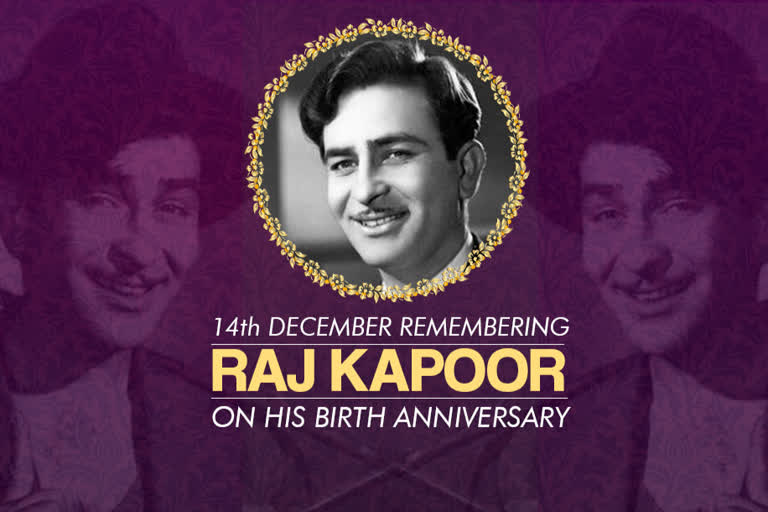Ranbir Raj Kapoor imbibed the passion for cinema from his legendary father Prithviraj Kapoor who with all his might tried to keep theatre art alive. Raj branched out from his father's shadow and reached greater heights in his career. The eldest of Kapoor siblings has been hailed as the embodiment of grandeur, romance and musical innocence for his impeccable contribution to Hindi cinema.
Dropped out of school, Raj started his career as a clapper boy at the age of 11. The aesthetic traditions of theatre and cinema at Bombay Talkies and Prithvi Theatre deeply nourished the soul of a future actor and filmmaker with astounding music sense.
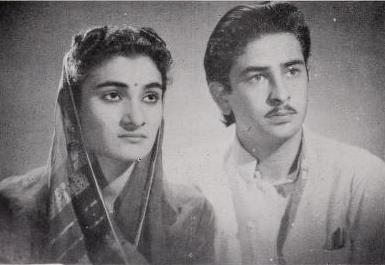
On the recommendation of Prithviraj, Kidar Sharma took ambitious Raj in his wings but made sure that he makes his way up starting at the bottom thus Raj joined him as a third assistant director. However, it was Sharma who discovered an actor in Raj and later launched him as a leading man alongside Madhubala in Neel Kamal.
As an actor, the good looks coupled with comical walk, mobility on his face, goofy smile and inherited blue-eyes made Raj a quintessential hero. Portrayals of innocent do-gooders and hopelessly romantic characters adorned his filmography as a leading man. Films like Teesri Kasam, Phir Subah Hogi, Anari, Chhalia, Sangam and Mera Naam Joker stroked his acting prowess.
Interestingly, Raj never aspired to see himself on the silver screen. He was drawn to filmmaking and more than that music was where his heart lied. At the young age of 24, he established R.K. Studio which later became an institution in itself. With the studio, RK also laid a strong foundation for the family whose fourth generation is still around and taking the legacy forward.
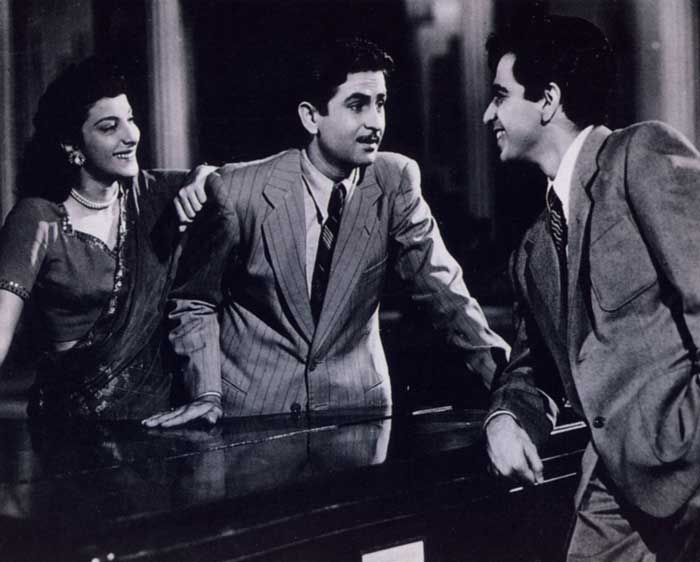
It takes a magisterial talent to survive and retain the top slot in the fickle filmic world where fate changes every Friday. RK was one among the few filmmakers who had achieved this rare feat.
According to film historians, Raj was a rebellious artist who snapped at the hypocrisy and social chasm since he was not delusional about the nation that was shaping up post-independence. Thus his films like Aag, Awara, Shree 420, Jagte Raho, Boot Polish and Jis Des Men Ganga Behti Hai, were woven around the sociopolitical fabric of its times.
In his romantic films, there was deepness of social consciousness courtesy K.A. Abbas who penned many memorable films for RK. "While he is no great ideologue, Raj Kapoor is not allergic to ideas. Indeed, with his basic sympathy with the cause of common man, he is more than amenable to socially progressive ideas and humanist ideals, so long as their presentation does not interfere with the popularity of his films," aphoristic statement by Abbas sums up the creative approach of the filmmaker who was camouflaged under aura of a romantic idealist.
He was an exceptional amalgamation of various talents but what put him above the rest was his quench for learning and subsequently improving his craft. When Marie Seton, a noted actress and critic who also penned Satyajit Ray's biography pinpointed what could have made Awara dream sequence better, Raj took the criticism in his stride without a flinch on his face.
Another trait which gave him an edge over his contemporary was scintillating melodies of his films. The terrific judgement of tunes, an eye for talent and creating visuals that would elevate the mood set by music were the basics which made albums of his films stood out.
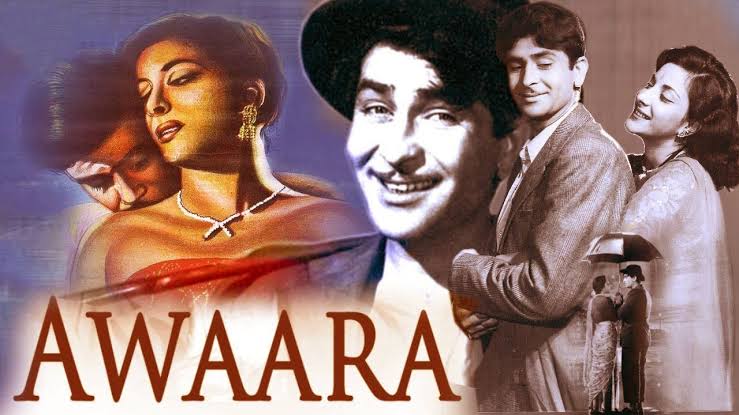
Lata Mangeshkar, who shared a close bond with the filmmaker wrote at legnth on her association with R.K. Films in Raj Kapoor: The One And Only Showman. In the book penned by Kapoor's grandgaughter Ritu Nanda, Lata recallects how RK flushed their labour of an entire day for Ghar aaya mera pardesi form Awara saying, he doesn't want "a popatiya song!". RK changed the whole song and also added an alaap to the song. The songstress reminisced the madness that went on till 3 a.m. For redemption, RK arranged food for entire team which they relished sitting in the middle of the road outside the studio.
The man whose first love had been music, paid massive attention to the details assuring musical innocence and simplicity of the songs which would touch the hearts of millions of people. Not only as filmmakers as an actor also he knew the strength of good music thus when Mukhesh, the man with golden voice died, RK said, "Maine apni awaaz ko kho diya..."
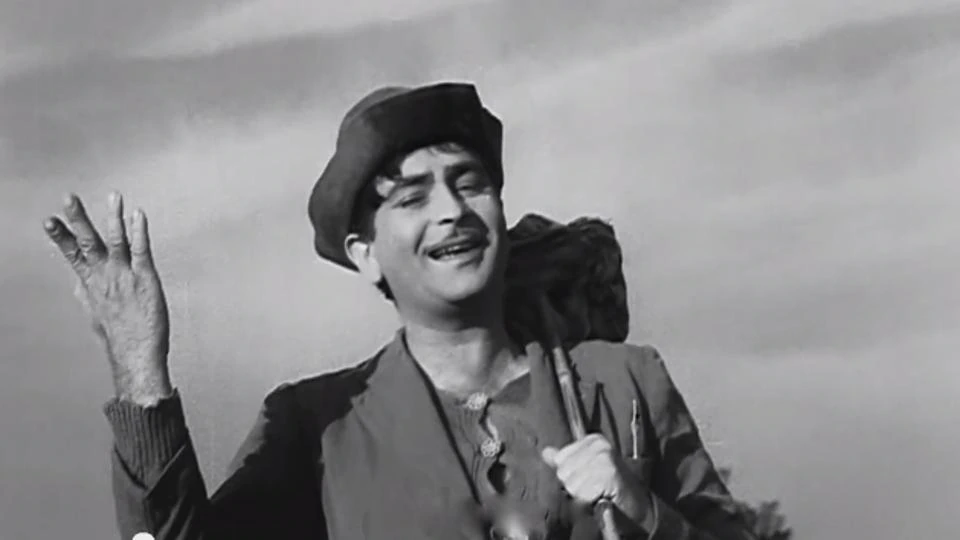
Though the music giants like Shankar-Jaikishen, Laxmikant-Pyarelal and Ravindra Jain were credited for composing some evergreen melodies for R.K. Films, it was Raj who would have ultimate word on the music of his films. He lived and breathed music, certainly!
Besides music and grandeur, the filmmaker would deploy romance and sensuality to realize his celluloid dreams. From Nargis, Vyjayanthimala, Mandakini to Zeenat Aman, Kapoor esthetically filmed physicality of his leading ladies. However, he was accused of instrumenting skinshow to titillate his audience. Need we say the filmmaker cared less about the claims questioning his attitude towards sex and nudity.
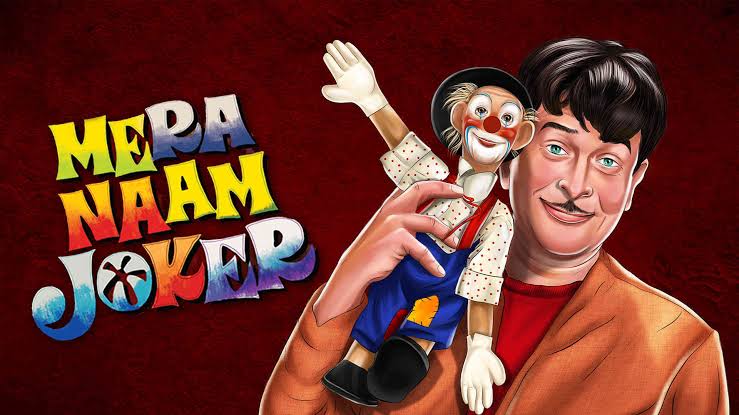
The failure of a successful man is as big as his achievements. Hence, the failure of Mera Naam Joker was so enormous that the filmmaker almost went bankrupt with all his assets including the esteemed R.K. Studios were mortgaged to ensure the release of his dream project.
But, the thespian rose from the ashes like a phoenix with films like, Bobby, Prem Rog and Ram Teri Ganga Maili.
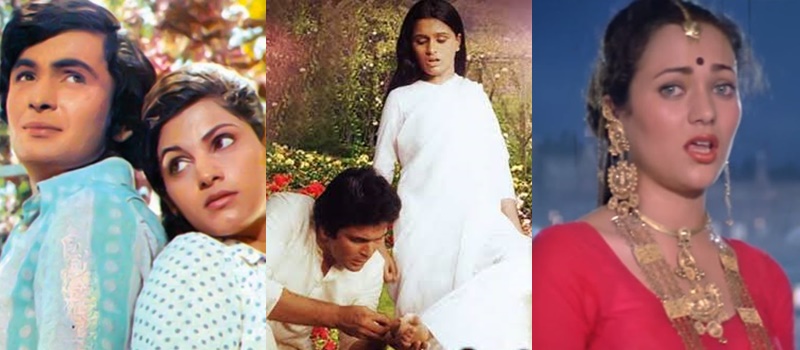
Neither his talent nor his passion that failed the Showman of Hindi cinema, what gave up on him was his health. His life was no less than a dramatic film where the finale had to hold the breath of his innumerable admirers.
In 1988, Raj collapsed on the day when he was bestowed with the Dadasaheb Phalke Award. The ageing stalwart then fought Adult Respiratory Distress Syndrome (ARDS) for a month in the capital city of the country. On June 2, 1988, the Awara who enthralled the nation for more than four decades with his celluloid dreams, made exit from the stage of life and left a void in the industry that cannot be filled.
